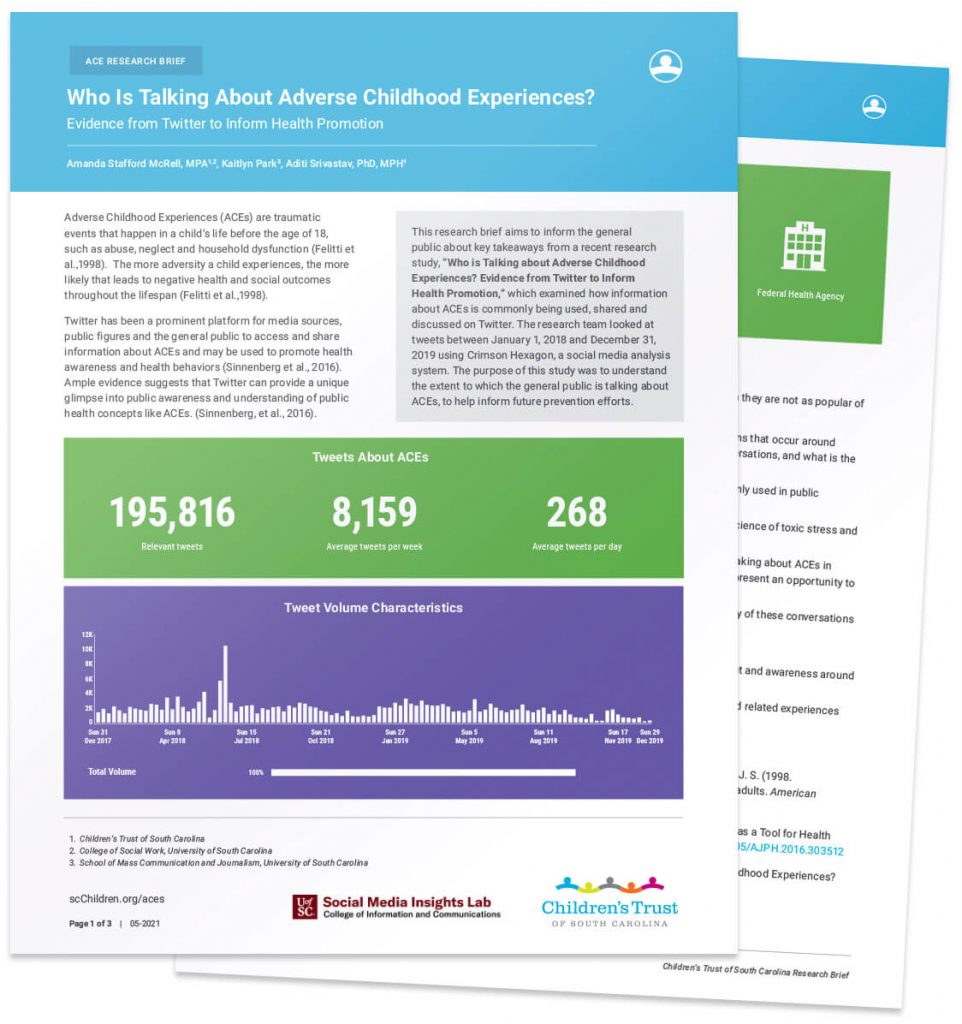Children’s Trust recently released a research brief in conjunction with the University of South Carolina’s Social Media Insights Lab that examined the role a social networking service can play in the discussion of a public health issue such as childhood adversity.
This research study – “Who is Talking about Adverse Childhood Experiences? Evidence from Twitter to Inform Health Promotion (PDF)” – explores how information about ACEs is commonly being used, shared and discussed on the microblogging site Twitter.
The researchers were Amanda Stafford McRell, MPA, Children’s Trust graduate research assistant; Aditi Srivastav, Ph.D., MPH, Children’s Trust director of research; and Kaitlyn Park, manager of the social media lab in the College of Information and Communications. The team looked at tweets between Jan. 1, 2018 and Dec. 31, 2019 using Crimson Hexagon, a social media analysis system. The purpose of this study was to understand the extent to which the general public is talking about ACEs to help inform future prevention efforts.
Adverse childhood experiences (ACEs) are traumatic events that occur in a child’s life prior to the age of 18. This adversity can harm a child’s brain and its development, which can result in long-term negative outcomes. Children who are exposed to trauma like physical and emotional abuse, divorce, substance use, domestic violence and mental illness are much more likely to become adults with health and social problems like depression, alcoholism, obesity, heart and liver disease, and decreased workplace performance.

Amanda Stafford McRell
“When we examine tweets and other social media conversations, we can better understand opinions and conversations about public health topics,” McRell said. “For example, this study examined tweets about ACEs and related topics, which allowed us to better understand who is leading these conversations and who is engaging in these conversations. This also helps us understand who is currently not participating in these conversations – so we can better understand where more public health messaging, such as targeted education campaigns, might be needed.”
Twitter is a leading social platform for media outlets, prominent public figures and the general public to access and share information about public health issues such as ACEs. Evidence exists that it can be used to promote health awareness as well as provide key information that furthers a greater understanding of public health concepts.
McRell noted the topic was chosen to fill in existing research gaps. Previous research on childhood adversity and social media communications found that 1) increasing awareness about childhood adversity can increase child, family and community health, and 2) social media, particularly Twitter, can be used to increase awareness about public health topics. Researchers had not fully explored how much information about ACEs is shared and discussed on Twitter.






